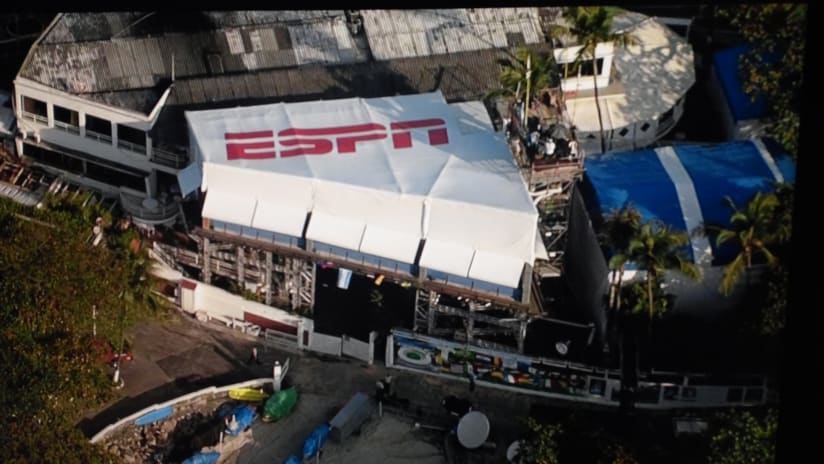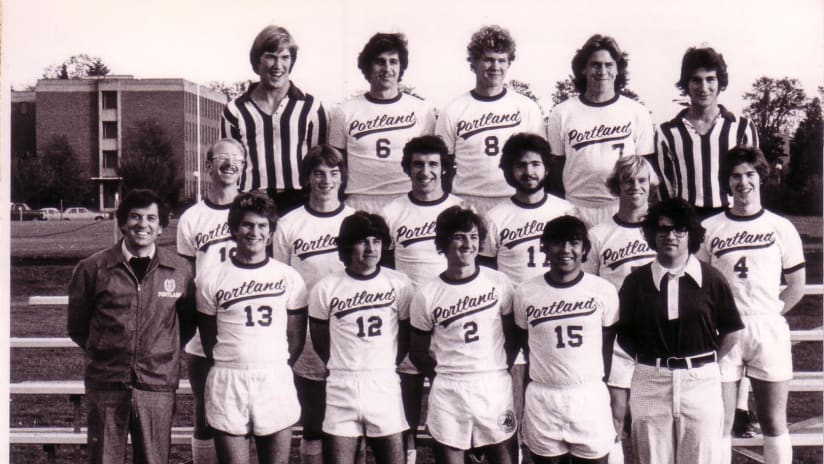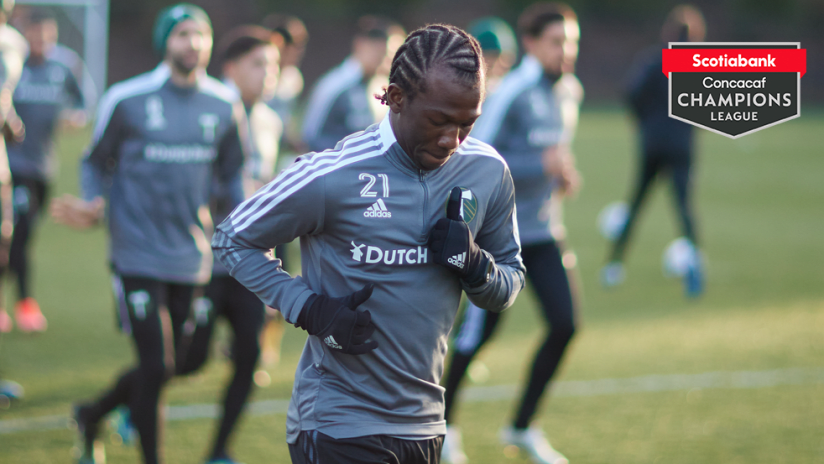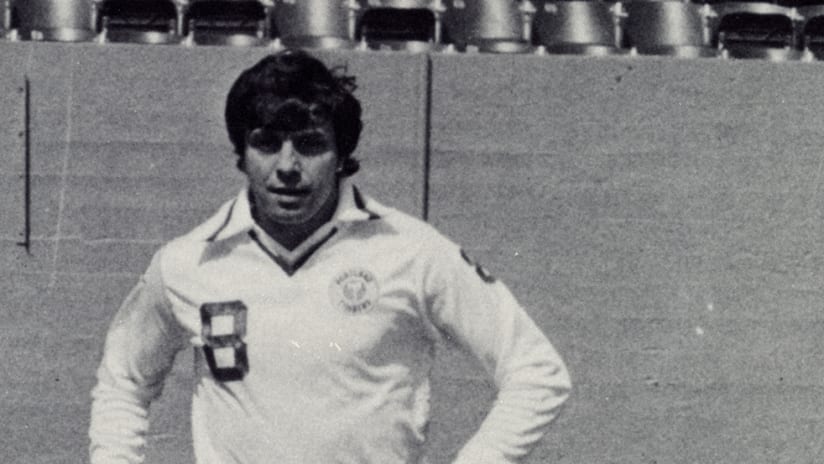Shaun Coy has had a pretty up-close look at all the festivities surrounding this year's 2014 FIFA World Cup. Coy, a longtime broadcast technician on numerous Portland Timbers broadcasts has also worked for ESPN over the past ten years. This summer, the Timbers season ticket holder has been headquartered within the ESPN Copacabana Beach production studio helping keep all the games coming through to fans all over the world.
We chatted over email with Coy to get a feel for what goes on behind-the-scenes of one of the largest broadcasts on the planet, what's life been like in Brazil, and who he thinks will win on Sunday's final between Argentina and Germany (12:00pm PT, ESPN2).
Job title:
Lead Viz Operator
Hometown:
Vancouver, WA
How many consecutive days will you be in Brazil before you fly back to the U.S?
53 days total
Have you worked other World Cups previously?
This is my 3rd World Cup. I also worked 2010 in South Africa (42 days) and 2011 Women’s WC in Germany (30 days).
How long have you worked for ESPN?
I have worked for ESPN consistently in a freelance capacity for just over 10 years.
Describe a typical production day. What is your role?
I am in charge of creating, implementing and maintaining insert graphics while also operating a VizRT graphics machine on-air during shows and pre-produced segments. Any graphic that you see over players on the field during warm ups/at training/interviews, full-screen stats, starting/tactical lineups, brackets/standings, promos, Twitter reactions, and monitors on the set come from our graphics group. There are four operators (myself included) and two Associate Producers who have worked long hours to keep things running smoothly.
We produce multiple segments for SportsCenter in the morning, afternoon and evening. We also produce the pregame, halftime and postgame shows, World Cup Tonight, and help support World Cup Encore from afar.
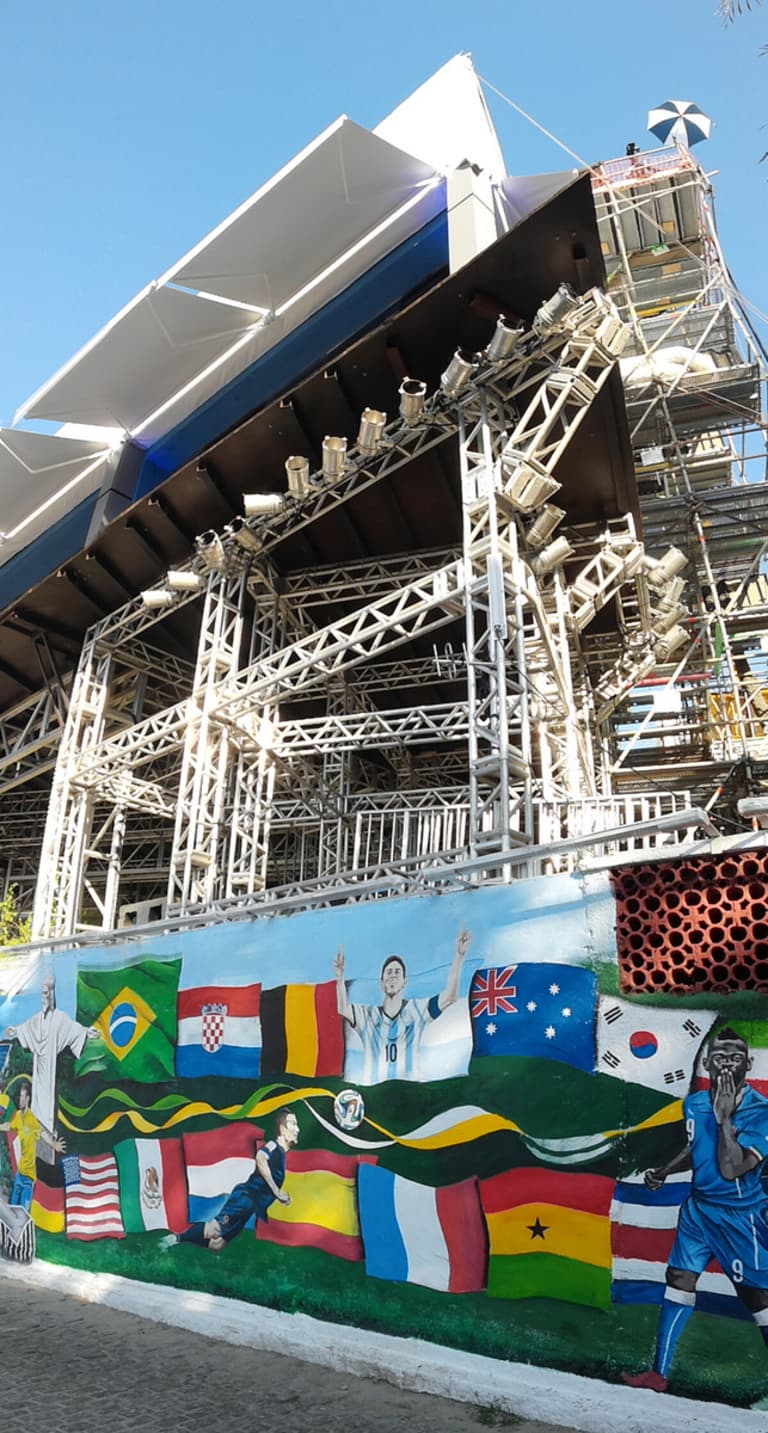
You are located at the ESPN Copacabana production studio that we all see on TV. Describe the setup there.
The studio setup in Rio is located at the far end of Copacabana Beach at the Clube dos Marimbás, a local social/boating club. ESPN has setup a temporary facility that includes studio space that is attached to the club building itself. There is also office space for operations that is normally a meeting space for club members. The technical facilities are located in two tent structures setup in the parking lot of the club. A two-story tent structure contains ESPN’s Domestic operations for English language TV which includes: all of the technical equipment racks, transmission (satellite and fiber), and a production control room that is larger than some permanent control rooms in the U.S. There is another smaller tent structure that facilitates ESPN International’s control room and production facilities. We are connected to the IBC and Bristol via a massive fiber link and satellite transmission paths. We have over 20 cameras spread out in the studio, on the beach and at the fan fest down the street. These include a 50 foot jib and multiple hours of helicopter coverage each day.
What’s your relationship to soccer outside of your work with ESPN?
I have been covering soccer for ESPN, NBC and Fox Sports for about a decade and have traveled the country and world in the process. My son has been playing soccer since he was four years old (now 10½), and is traveling for tournaments and other events. My family has been Timbers season ticket holders until recently (hard to participate while being a world away) and soccer is a big part of our family’s life.
What is the “feel” of Brazil like during something as massive as the World Cup?
It has been an interesting experience. Walking to/from work feels like a constant party by locals and visitors alike, but there are also many folks in the crowd looking for an easy opportunity to pick a pocket or run a scam. The locals that I have interacted with have been kind and helpful, and it is fun to see so many visitors from different countries gather in one place for this event. There are folks from all over the world dressed in their country’s colors, waving flags, singing songs, and camping out in cars, vans and even RVs in the streets.
Were group stage match days busier than the knockout rounds?
The schedule has changed throughout the tournament based on the number of matches going on during the day and other live or taped shows that we are producing. Group Stage was insanely busy! Most of us worked 30+ days straight, 10-12 hours per day. The last 4 days of group play also bring the challenge of simultaneous matches (two at a time). The matches aired on ESPN & ESPN2 at the same time and we had to provide content for both at once. The Round of 16 and Quarterfinals are a great change of pace with only two matches per day. It really makes a difference in the daily chaos.
Any predictions for the final?
Germany vs Argentina Final – Germany wins, but only by a goal.

